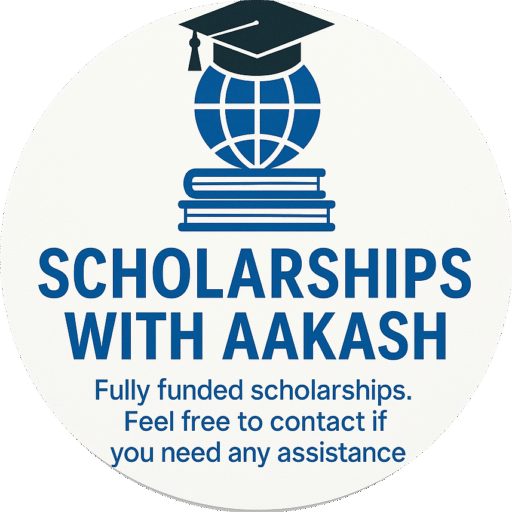“Explore top Marie Curie Scholarships: funding, eligibility, expert tips, and how to apply—launch your research career with confidence.
URL Slug
/marie-curie-scholarships-excellence-boost
Introduction
Marie Curie Scholarships empower researchers to excel globally. Known as the Marie Skłodowska-Curie Actions (MSCA), this EU flagship programme nurtures researchers with mobility, training, and world-class funding to transform careers and drive innovation. 💡
The programme supports doctoral and postdoctoral researchers through tailored schemes like Postdoctoral Fellowships, Doctoral Networks, Staff Exchanges, COFUND, and MSCA and Citizens (Wikipedia, ukro.ac.uk, Research and innovation).
In this post, you’ll learn everything—from funding types, eligibility, and application strategies to FAQs and expert advice—all optimized for search engines and readers alike.
1. What Are Marie Curie Scholarships?
Marie Curie Scholarships—officially Marie Skłodowska-Curie Actions (MSCA)—are among Europe’s premier research fellowships, created to support excellence, mobility, and interdisciplinary training across continents (Wikipedia, Research and innovation).
Funded under Horizon Europe (Pillar I: Excellent Science), MSCA provides around €6.6 billion from 2021 to 2027, supporting thousands of researchers (Wikipedia).
2. Why Choose MSCA?
- Global Reach: Open to researchers of any nationality and host organizations worldwide.
- Mobility: Encourages cross-border, sector, and interdisciplinary research experiences.
- Full Funding: Covers salary, mobility, research costs, allowances, and overheads (marie-sklodowska-curie-actions.ec.europa.eu, EURAXESS).
- Excellence & Career Impact: Highly competitive and prestigious; builds skills and networks for leadership roles (Wikipedia, ukro.ac.uk).
3. Key Funding Schemes
a) Postdoctoral Fellowships (PF)
Two main types:
• European Postdoctoral Fellowships
- Research conducted in an EU Member State or Horizon Europe Associated Country.
- Duration: 1–2 years.
- Available to researchers of any nationality (marie-sklodowska-curie-actions.ec.europa.eu, Wikipedia).
• Global Postdoctoral Fellowships
- First 1–2 years in a third-country institution, plus a mandatory 1-year return phase to Europe.
- Only EU/Associated Country nationals or long-term residents can apply (marie-sklodowska-curie-actions.ec.europa.eu, Wikipedia).
Common Features:
- Include optional secondments up to 1/3 of fellowship duration, and a 6-month non-academic placement at the end for European fellows (EURAXESS, marie-sklodowska-curie-actions.ec.europa.eu).
- Funding covers living, mobility, family, special needs allowances, research, training, management, and institutional costs (marie-sklodowska-curie-actions.ec.europa.eu).
b) Doctoral Networks (DN)
Structured doctoral training programmes that engage academic and non-academic sectors to train PhD candidates collaboratively (Wikipedia, ukro.ac.uk).
c) Staff Exchanges (SE)
Promotes international and cross-sectoral research collaborations through exchanges of staff between institutions (Wikipedia).
d) COFUND
Co-funds regional, national, or international doctoral/postdoctoral programmes aligned with MSCA principles (Wikipedia).
e) MSCA and Citizens
Initiatives to bring research closer to the public—e.g., European Researchers’ Night, outreach activities (Wikipedia).
4. Eligibility & Application Insights
Eligibility Criteria (Postdoc Fellowships)
- PhD required by the deadline (or successfully defended) (marie-sklodowska-curie-actions.ec.europa.eu, iiasa.ac.at).
- Max 8 years of research experience post-PhD, with allowances for career breaks, non-research periods, parental leave, etc. (EURAXESS, marie-sklodowska-curie-actions.ec.europa.eu).
- Mobility Rule: No more than 12 months in the host country in the 36 months before the deadline (marie-sklodowska-curie-actions.ec.europa.eu, EURAXESS).
- Resubmission restrictions if same researcher–host pair previously scored under 70% (marie-sklodowska-curie-actions.ec.europa.eu).
- Deadlines: 2025 call opened on 8 May 2025, closes 10 September 2025 (euraxess.sk, EURAXESS).
Application Process
- Choose a Scheme (PF, DN, etc.) and review the work programme and guide for applicants on the European Commission or Funding & Tenders Portal (Research and innovation, marie-sklodowska-curie-actions.ec.europa.eu).
- Find a host via EURAXESS hosting offers or institutional networks (marie-sklodowska-curie-actions.ec.europa.eu, EURAXESS).
- Prepare proposal with host, complete forms, follow self-assessment tools for eligibility (marie-sklodowska-curie-actions.ec.europa.eu, EURAXESS).
- Submit via the Electronic Submission Service before deadline (marie-sklodowska-curie-actions.ec.europa.eu).
- Evaluation & Feedback: High-scoring proposals without funding may receive “Seals of Excellence” (≥85%) (marie-sklodowska-curie-actions.ec.europa.eu).
5. Expert Tips for a Successful Application
- Align Your Proposal: Highlight innovation, mobility, interdisciplinary impact, and alignment with EU research priorities.
- Use EURAXESS Tools: Explore hosting offers and webinars for guidance—e.g., “Find a host organisation in Europe” via EURAXESS (EURAXESS).
- Meet Mobility Requirements: Carefully calculate the 8-year rule and permissible mobility with the self-assessment tool (EURAXESS).
- Early Submission: Submit well before deadline to avoid technical issues.
- Leverage Feedback: Resubmit with improvements if your previous score was below threshold.
- Attend Info Sessions: MSCA offers webinars like Doctoral Networks info day, Staff Exchanges sessions, often streamed live (Research and innovation).
- Cite and Build Authority: Reference official MSCA work programmes and credible academic networks to signal E-E-A-T.
University of Pretoria Commonwealth Scholarship
6. FAQs (With FAQ Schema Potential)
Q1: What types of Marie Curie Scholarships exist?
A: Postdoctoral Fellowships (European & Global), Doctoral Networks, Staff Exchanges, COFUND, and MSCA & Citizens outreach (Wikipedia, Wikipedia).
Q2: Who can apply for MSCA Postdoctoral Fellowships?
A: Researchers with a PhD (or defended thesis) with ≤8 years research experience, meeting mobility requirements (marie-sklodowska-curie-actions.ec.europa.eu, EURAXESS).
Q3: When is the 2025 call deadline?
A: Opens on 8 May 2025 and closes on 10 September 2025 (euraxess.sk, EURAXESS).
Q4: What funding is included?
A: Salary/living allowance, mobility allowance, family/special needs allowances, research/training/networking funds, institutional overheads (marie-sklodowska-curie-actions.ec.europa.eu).
Q5: How do I find a host organization?
A: Use the EURAXESS portal, search hosting offers, leverage networking, or attend MSCA matchmaking events (marie-sklodowska-curie-actions.ec.europa.eu, EURAXESS).
7. Call to Action
Ready to launch your research journey with a Marie Curie Scholarship?
- Browse current hosting offers on EURAXESS
- Review the 2023–2025 MSCA Work Programme on the EU Website
- Contact your country’s MSCA National Contact Point (NCP) for tailored guidance (marie-sklodowska-curie-actions.ec.europa.eu, ukro.ac.uk).
Your next big leap in research is just a proposal away. 🌍🔬
🧑🎓 Author Bio

Mubeen Ali Niaz
Founder of ScholarshipsWithAakash.site
Mubeen curates top-ranked, fully funded scholarships for international students. With a strong background in global education and SEO, he helps students worldwide gain access to world-class research programs.
Stay tuned with Scholarships with Aakash — Where Your Academic Dreams Take Flight.
📢 Support Us on Social Media
If you find this helpful, support our work:
Website: scholarshipswithaakash.site
🔴 YouTube
🎵 TikTok
🧵 Threads
📲 WhatsApp Channel
Also Check Out: For more Scholarship Opportunities scholarshipswithaakash.site/scholarships/


I don’t think the title of your article matches the content lol. Just kidding, mainly because I had some doubts after reading the article. https://accounts.binance.com/kz/register-person?ref=K8NFKJBQ
Please contact on email